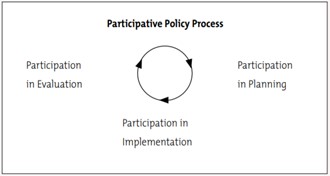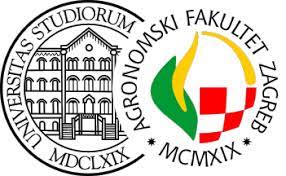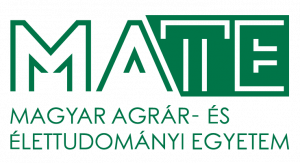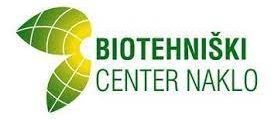1.1 Participatory approach –an alternative system of learning
| Site: | TOPPlant Portal |
| Course: | Training Manual for Plant Protection in Organic Farming |
| Book: | 1.1 Participatory approach –an alternative system of learning |
| Printed by: | Guest user |
| Date: | Tuesday, 24 February 2026, 5:01 AM |
Introduction
Organic farming is an overall system of farm management and food production that combines good agricultural practices, a high level of biodiversity, the conservation of natural resources, the application of high animal welfare standards and a production method that meets the preference of certain consumers for products derived from natural substances. Changes in the production technologies of interesting plants and animals require a more subtle approach to organic farming. In general, organic agriculture refers to farming systems that avoid the use of synthetic pesticides and fertilizers. Conversion from conventional to organic farming describes the process of learning and implementing changes on the farm toward a more sustainable and natural way of farming. The more a farmer knows about organic farming concepts and practices, the easier it will be to convert to organic farming. Therefore, education for organic farming is crucial.
Agricultural extension has long been seen as a key element in improving agricultural development. However, the effectiveness of two dominant approaches to agricultural extension services in particular—Training and Visit (T&V) and Farmer Field Schools (FFS)—has been widely debated. The T&V approach relies on the “top-down” extension of technical information, with specialists and field staff transferring knowledge to “contact farmers” in villages, who in turn are responsible for diffusing knowledge into the local community. As a response to this top-down approach, FFS were developed as a “bottom-up” approach to extension with a focus on participatory, experiential, and reflective learning to improve the problem-solving capacity of farmers through highly trained facilitators working with farmer groups.
Participatory approach –an alternative system of learning
Learning Outcomes:
- Describe participatory approach paradigm and explain basic principles of participatory learning.
The participatory approach advocates the active involvement of the public in decision-making processes, with appropriate public depends on the topic at hand. The public may be average citizens, stakeholders of a particular project or policy, experts and even members of government and private industry. In general, policy processes can be seen as a three-step cycle of planning, implementation and evaluation, where a participatory approach can be applied to some or all of these steps (Figure 1.1).

From a pragmatic point of view, it is better to have as much knowledge, experience and expertise as possible in dealing with the complex (and therefore uncertain) nature of social issues and problems. It is necessary to create access for all relevant people to contribute to solutions and planning for the future.
From a normative perspective, new problems and issues in society often raise questions for which existing social norms are inadequate or non-existent, causing uncertainty and anxiety in society. In addition, pluralism (often of conflicting) norms in society, it is often mixed with interests (financial or otherwise) that are unevenly represented in society. It is therefore desirable to allow as democratic a process as possible to ensure that all values and opinions can be represented in discussions and decision-making.
Participatory processes are expected to be able to involve the public directly in planning and implementation. The participatory approach is seen as a way to strengthen social cohesion. It is a useful process for building consensus when differences of opinion and even disputes need to be resolved. When this approach is used at the beginning of the process, participants can share their views, values and reflections on the emerging issue as they are still developing and maturing. Where opinions are already polarized, some methods are particularly useful in mediating between stakeholders to reach a consensus or at least a joint decision after all views have been presented. All views are expressed. At least through these processes, mutual understanding is achieved and all voices can be heard.
Involvement in participatory processes also builds public capacity. It does this by educating the public and creating networks of relevant people. In doing so, not only the public learns, but also decision-makers learn how to improve their services and products when they receive direct feedback from "users". Rather than creating first and then fixing, it is most effective to involve end-users’ in initial design and planning.
Concept of participatory approach in learning
Learning should be understood as a meaning-construction process. To achieve such meaningful learning, the basic activities in the process of knowledge creation must be directed towards the construction of meanings for the learners themselves. Therefore, learning strategies should be implemented that provide learners with the tools to construct their own corpus of learning strategies and thus contribute to their holistic learning.
The concept of participatory learning emphasizes learning through active engagement, participation, constructing knowledge and participation in the learning experience through collaborative learning, co-learning and engagements. In participatory learning, learners are at the center of learning. Reciprocal processes between learners are essential to create multiple and strong relationships to carry out learning activities for continuous learning by producing knowledge, harvesting knowledge to generate more new ideas and contributing back to the community.
Most participatory approaches involve small groups, usually with learners of different levels of ability, working together to solve a group task where each member is individually responsible for a part of the outcome that cannot be achieved if the members do not participate/work together. Members are positively independent and use a variety of learning activities to enhance their understanding of the subject. In participatory learning, the role of the learner is crucial and vital, as it is the learner who can achieve the distant conditions of his/her learning, and the teacher as a facilitator of the learner's autonomy building. By allowing learners to take control of their own activity, it signifies their involvement in the educational task, as the initiative will come from within each learner, thus responding to their interests and needs.
Participatory learning is a leaner centered approach. Learners take control of their own activity and participate in decision-making. The facilitator and learners negotiate together to define content that reflects the needs and demands of the learners. In participatory learning, the learner does not learn alone, but in the company of a group or peers who learn cooperatively together. In participatory learning, learning is a process that goes beyond the four walls of the classroom and is not confined to the classroom.
Participatory methods comprise a range of activities with the common thread of empowering ordinary people to take an active and influential part in the decisions that affect their lives. This means that people are not only listened to, but also heard, and their voice shapes the outcomes.
Researchers, community members, activists and donors use participatory methods. Because respect for local knowledge and experience is paramount, the results of interventions reflect local realities, often leading to better-supported and longer-lasting social change. Participatory methods can be used in all phases of the project cycle related to development aid, whether people are involved in analysis, joint decision-making, planning or reflection. They are also useful in political processes as a tool to strengthen citizen participation, promote rights and hold the powerful to account.
Basic principles of participatory learning
For a wider range of development programmes, these approaches represent a significant departure from standard practice. Some of the changes being implemented are remarkable. In a growing number of government and non-government institutions, extractive research is being replaced by research and analysis carried out by local people themselves. Methods are being used not only to inform local people externally, but also for people themselves to analyze their own situation.
The interactive involvement of many people in differing institutional contexts has promoted innovation and ownership, with many variations in the way that systems of learning have been put together. There are many different terms, but they have the following important common principles:
- A defined methodology and systemic learning process. The focus is on cumulative learning by all the participants and, given the nature of these approaches as systems of learning and interaction, their use must be participative.
- Multiple perspectives. A central objective is to seek diversity, rather than to characterize complexity in terms of average values. The assumption is that different individuals and groups make different evaluations of situations, which lead to different actions. All views of activity or purpose are heavy with interpretation, bias, and prejudice, and this implies that there are multiple possible descriptions of any real-world activity.
- Group learning processes. All involve the recognition that the complexity of the world will only be revealed through group inquiry and interaction. This implies three possible mixes of investigators, namely, those from different disciplines, from different sectors, and from outsiders (professionals) and insiders (local people).
- Context specific. The approaches are flexible enough to be adapted to suit each new set of conditions and actors, and so there are multiple variants.
- Facilitating experts and stakeholders. The methodology is concerned with the transformation of existing activities to try to bring about changes which people in the situation regard as improvements. The role of the "expert" is best thought of as helping people in their situation carry out their own study and so achieve something. These facilitating experts may be stakeholders themselves.
- Leading to sustained action. The learning process leads to debate about change, and debate changes the perceptions of the actors and their readiness to contemplate action. Action is agreed upon, and implementable changes will therefore represent an accommodation among the different conflicting views. The debate or analysis both defines changes which would bring about improvement and seeks to motivate people to take action to implement the defined changes. This action includes local institution building or strengthening, thus increasing the capacity of people to initiate action on their own.
These alternative systems of learning and action imply a process of learning leading to action. A more sustainable agriculture, with all its uncertainties and complexities, cannot be envisaged without all actors being involved in continuing processes of learning.





